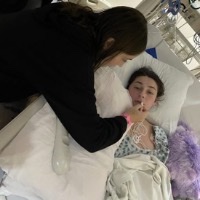Methicillin-resistant Staphylococcus aureus or MRSA is a staph infection that is immune to many types of antibiotics. (Antimicrobial Resistance (AMR)/Antibiotic Resistance) Staphylococcus aureus is a common bacterium that lives on our skin and, most of the time, causes no ill effects. Problems may arise, however, if there is a break in the skin – through a cut, a puncture, or some other opening – that allows the staph to enter into the body.
An unchecked infection may develop into sepsis. Sepsis, which was often called blood poisoning, is the body’s life-threatening response to infection. Like strokes or heart attacks, sepsis is a medical emergency that requires rapid diagnosis and treatment.
Sepsis and septic shock can result from an infection anywhere in the body, such as pneumonia, influenza, or urinary tract infections. Worldwide, one-third of people who develop sepsis die. Many who do survive are left with life-changing effects, such as post-traumatic stress disorder (PTSD), chronic pain and fatigue, organ dysfunction (organs don’t work properly), and/or amputations.
There are two types of MRSA infections: community-acquired (CA) and hospital-acquired (HA). The most common type is HA-MRSA, but CA-MRSA is becoming more common.
MRSA infection spread
Most often, MRSA infection spreads by skin-to-skin contact or through contact with items contaminated by the bacteria. For example, if you skin your knee on a surface that has MRSA, it could enter your body through the break in the skin.
Healthcare-acquired infections are spread by the people inside a healthcare facility. They may touch a patient who has MRSA and then transmit the bacteria to another patient. Patients may also contract MRSA in a facility if they touch contaminated objects, such as a bedside table or bed rails.
Symptoms
According to Centers for Disease Control and Prevention (CDC), MRSA infections usually appear as a bump or infected area on the skin that might be:
- Red
- Swollen
- Painful
- Warm to the touch
- Full of pus or other drainage
- Accompanied by a fever
Who is at risk for MRSA infection?
Anyone can develop this type infection, however people with weakened immune systems or chronic illnesses do have a higher risk. MRSA also spreads easily within healthcare settings.
Treatment
Although MRSA is bacteria methicillin-resistant, it can often be treated with another type of antibiotic.
For effective MRSA treatment, the infection must be caught and treated as early as possible.
Prevention
Not all infections can be prevented, but the chances of spreading infections can be greatly reduced by following these tips:
- Wash your hands often, particularly if you are in a healthcare facility.
- Keep wounds clean and covered.
- Avoid sharing personal items, such as razors.
You can also help protect yourself by eating a healthy diet. Malnutrition, not consuming enough nutrients for your needs, can lower your body’s ability to fight infection.
If you suspect sepsis, call 9-1-1 or go to a hospital and tell your medical professional, “I AM CONCERNED ABOUT SEPSIS.”

The information here is also available as a Sepsis Information Guide, which is a downloadable format for easier printing.
Would you like to share your story about sepsis or read about others who have had sepsis? Please visit Faces of Sepsis, where you will find hundreds of stories from survivors and tributes to those who died from sepsis.
Suggested Citation: Sepsis Alliance. Sepsis and MRSA. 2023. https://www.sepsis.org/sepsisand/mrsa/
Updated May 30, 2023.
































